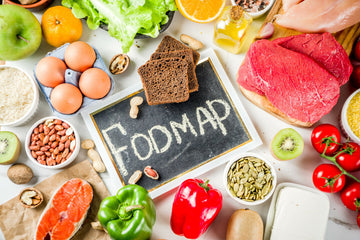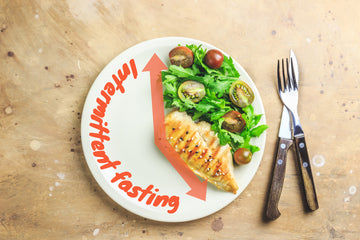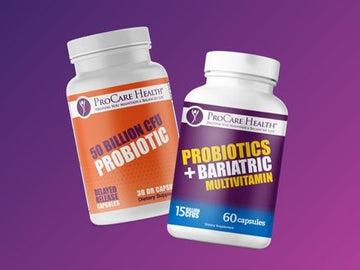by Anthony Benjamin on Oct 12, 2022

Everything You Need to Know About Gluten
In recent years, you may have heard the phrase “gluten-free.” However, no one has probably ever bothered to explain to you what that term means. Well, we’re here to help. Going gluten-free means eating a diet devoid of all gluten-containing ingredients. People do this for several reasons. Keep reading to learn more about gluten and what it means to be gluten-free.
What Is Gluten?
Gluten is a protein in wheat, barley, rye, and triticale. Traditionally, you can find gluten in things like bread and pasta, as it gives them their spongey texture. However, many manufacturers also use gluten as an additive in salad dressings and lip balms as a thickening agent. So, what’s so bad about gluten?
Why Do People Go Gluten-Free?
People choose to go gluten-free for a variety of reasons. For instance, someone with celiac disease must go on a gluten-free diet to avoid damaging their gastrointestinal tract. For people with celiac disease, consuming even the most minuscule amounts of gluten (1/8 of a teaspoon) can trigger negative symptoms like abdominal pains, bloating, nausea, and vomiting.
Other people may choose to follow a gluten-free diet because of non-celiac sensitivity or a wheat allergy. Consuming gluten causes bothersome side effects due to an inflammatory response for those with gluten sensitivity. The symptoms may be flu-like. You can expect to experience bloating, mental fogginess, and fatigue. These are also symptoms of celiac disease, so make sure to talk to your doctor about testing for the autoimmune disease, as you can cause prolonged damage to your gastrointestinal tract without proper treatment.
For a wheat allergy, you should avoid specific sources of gluten. Wheat allergies are commonly confused as gluten allergies, but they can cause an individual to have a severe reaction to any of the proteins in wheat, not just gluten.
It’s important to note that the treatment for all of these conditions includes eliminating all gluten-containing foods from your diet. That doesn’t mean you can eat gluten-free cookies and be healthy. Removing gluten from your diet will help heal your gut, but it’s best to stick to whole, nutritious foods like fruits, vegetables, and lean meat to keep your whole body healthy.
How Do I Shop Gluten-Free?
- Always look for the words “gluten-free” on the food packaging. While not required by the FDA, some food packages will even show a gluten-free symbol or trademark. However, avoid food packaging that says, “no gluten-containing ingredients,” as this could signify that the manufacturer does not test for gluten in their product.
- Read the package’s entire ingredient list, especially if the product you’re looking at isn’t strictly labeled as gluten-free. Reading the ingredients will help you spot barley or rye, which won’t be listed as an allergen below the ingredient list like wheat.
- Only consume an oat product if the manufacturer labels it gluten-free. Some oats can be cross-contaminated with gluten while being processed for consumption.
- You don’t have to avoid ingredients like caramel color, maltodextrin, or maltose, as these are all corn-based products. You can also enjoy products that contain dextrose, glucose syrup, distilled vinegar, artificial flavor, and food starch/ modified food starch (if the item is specifically labeled as gluten-free).
- Read the manufacturer’s warning if a product is not labeled gluten-free. Some manufacturers will include a notice like “may contain” or “made on shared equipment” with wheat/gluten. The FDA does not require these warnings, so to stay safe, only consume grain-based products that explicitly state they are gluten-free.
Should You Go Gluten-Free?
Overall, you should consult your doctor about going gluten-free. If you believe you are experiencing symptoms of celiac disease or non-celiac sensitivity, do not cut gluten before contacting your doctor or a gastroenterologist, as the tests for celiac disease require gluten to be in your system to be effective.
Just know that going gluten-free isn’t the end of the world. These days, there are many different gluten-free alternatives for all your favorite foods. It will take some time to get used to checking food labels, but once that’s become a habit, the lifestyle becomes much more manageable.
Shop With ProCare Health Today!
Going gluten-free means you may not be getting all the nutrients you need, especially if you are a bariatric patient. ProCare Health provides a wide array of supplements to help you reach your nutritional goals. Are you on a gluten-free diet? No problem! All our supplements are gluten free. Visit our website today and look at what we have to offer. Do you have a question about one of our products? Contact us here!

How the Low FODMAP Diet Is Good for Gut Health

What Is Food Noise?


